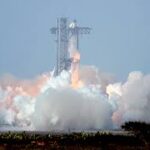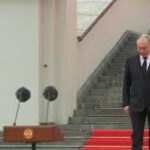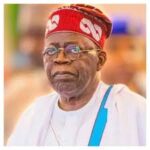New York — Aliko Dangote, Chairman of the Dangote Group and Africa’s second-richest person, has expressed regret over his decision not to purchase Premier League club Arsenal when he had the opportunity. In a recent interview on Bloomberg TV in New York, the billionaire reflected on his past intention to acquire the North London club for $2 billion, admitting that “the time has passed.”
Dangote, whose current net worth is estimated at $13.4 billion as of September 2024, initially made headlines in 2020 when he publicly declared his ambition to buy Arsenal Football Club after completing his ongoing refinery project in Nigeria. However, with Arsenal’s current valuation now standing at approximately $4 billion, Dangote acknowledged that acquiring the club is no longer feasible given his financial situation.
In the interview, Dangote candidly admitted that the price for Arsenal has doubled since his initial interest, saying, “I had the chance to buy Arsenal for $2 billion back then, but now it’s valued at around $4 billion. I no longer have the liquidity to justify such a purchase.”
Dangote’s declaration has sparked widespread reactions across both the business and football communities. Arsenal, a globally recognized football club with millions of fans, has long been the subject of interest from various wealthy investors. The club is currently owned by Stan Kroenke, an American billionaire who has been the majority shareholder since 2011.
In 2020, Dangote’s announcement of his desire to acquire Arsenal was met with enthusiasm by Nigerian football fans, many of whom supported the idea of an African owner taking over a prominent European club. At the time, Dangote was focused on completing his multibillion-dollar Dangote Refinery in Lagos, which he had described as a top priority before venturing into sports ownership.
However, the shifting dynamics of the global economy, rising valuations in the sports sector, and his own business priorities appear to have altered Dangote’s outlook on the potential acquisition. The missed opportunity is notable, given that Arsenal’s valuation has surged in recent years due to its return to prominence in European football and increasing revenues from sponsorships, broadcasting rights, and commercial activities.
Arsenal Football Club’s valuation has more than doubled since Dangote first showed interest, driven by its resurgence in competitive football and growth in global fan engagement. The club’s participation in high-profile tournaments like the UEFA Champions League and its commercial partnerships have contributed significantly to its current estimated value of $4 billion.
Given the increasing trend of billionaire investors purchasing European football clubs as part of diversified portfolios, Arsenal has become one of the most coveted sports assets worldwide. As the global sports market continues to expand, major football clubs like Arsenal are seeing skyrocketing valuations, further placing them out of reach for potential buyers who do not act quickly.
Despite expressing regret, Dangote’s focus on his industrial empire remains strong. He continues to lead the Dangote Group, which spans multiple sectors including cement, sugar, and oil. His Dangote Refinery project, which has seen delays over the years, remains one of the most ambitious private-sector projects in Africa. Once fully operational, the refinery is expected to be a major player in the oil and gas industry, potentially reshaping Nigeria’s energy landscape.
While his plans to purchase Arsenal may have been set aside, Dangote’s legacy as one of Africa’s most influential entrepreneurs is undeniable. Whether he will consider future investments in sports remains to be seen, but for now, his missed opportunity to acquire Arsenal stands as a poignant reminder of the rapidly shifting valuations and dynamics in global sports ownership.









